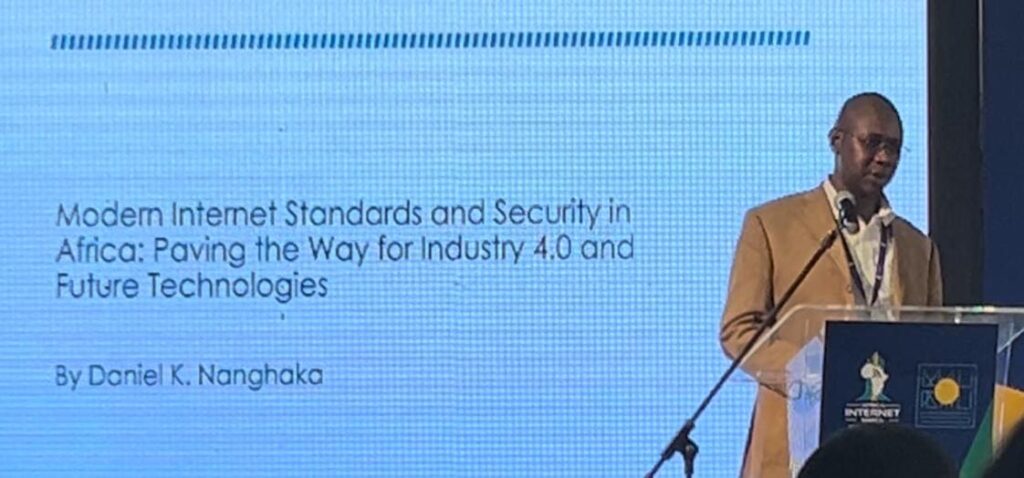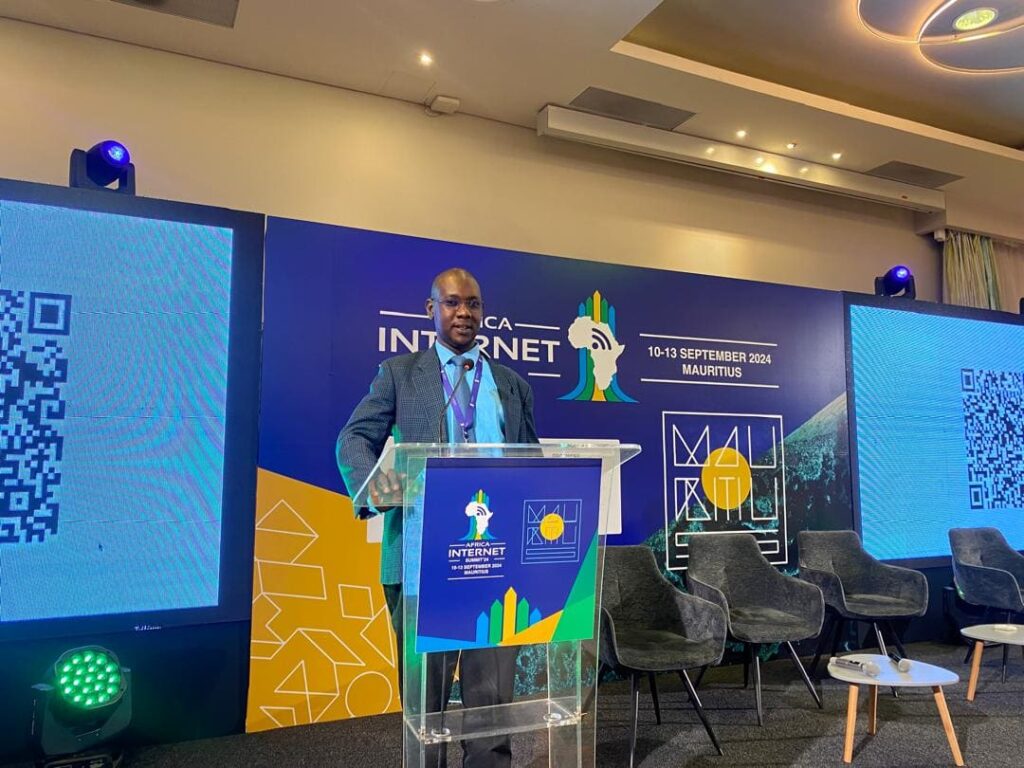Enhancing Internet Infrastructure and Cybersecurity in Africa: A Pathway to Digital Transformation
MAURITIUS – The Africa Government Interministerial Meeting, held as part of the Africa Internet Summit (AIS) 2024, brought together key stakeholders to discuss one of Africa’s most pressing digital challenges: building a resilient internet infrastructure and enhancing cybersecurity across the continent. Daniel K. Nanghaka, Principal Program Officer – Industry 4.0+ at the Science, Technology, and Innovation Secretariat, Uganda, delivered a thought-provoking presentation on the subject, shedding light on the roadblocks and opportunities for Africa’s digital future.
In his address titled “Enhancing Internet Infrastructure and Cybersecurity in Africa,” Nanghaka outlined the critical role of modern Internet standards, robust cybersecurity measures, and strategic investments in bridging Africa’s digital divide.
The African Cybersecurity Challenge
Nanghaka began by highlighting the increasing sophistication of cyberattacks on African infrastructure, which cost countries an average of 10% of their GDP annually. He pointed out that only 39 out of 54 African nations have implemented cybersecurity legislation, and a mere 14 have ratified the African Union Convention on Cybersecurity and Personal Data Protection. This regulatory gap, coupled with the acute shortage of cybersecurity professionals (with an estimated shortage of 100,000 experts as of 2020), exacerbates the continent’s vulnerability.
“Africa’s low preparedness for cyber threats is costing us not just in terms of economic growth but also in our ability to secure our digital future,” Nanghaka remarked. He emphasized that government action must go beyond rhetoric, with clear investments in both the technical capacity and the legal frameworks required to fend off rising cyber threats.

Building a Resilient Internet Infrastructure
A key focus of Nanghaka’s presentation was the urgent need for investment in internet infrastructure. As of 2022, only 36% of Africa’s population had broadband access, with significant disparities between urban and rural areas. Nanghaka pointed out that while major projects like Uganda’s Last Mile Connectivity Project and the $320 million East2West fibre-optic cable project offer hope, more investment is required to close the gap.
“Government investment in critical infrastructure, particularly in underserved regions, is essential,” he said. “We must promote last-mile connectivity projects and leverage public-private partnerships to bring reliable and affordable internet services to all Africans.”
Nanghaka further stressed the importance of local solutions, including internet exchange points and data centres, which can reduce dependence on foreign infrastructure. “Much of Africa’s data is hosted overseas, leaving it vulnerable to external surveillance. We need to invest in local data centres to maintain control over our data,” he urged.
Fostering a Secure Digital Environment
Throughout the presentation, Nanghaka underscored the vital role of cybersecurity in Africa’s digital transformation. He called for increased awareness and education around modern internet security standards, including IPv6, RPKI, DNSSEC, and secure email protocols (such as DMARC, DKIM, and SPF).
“Adopting modern internet standards is not optional if we are to secure Africa’s digital ecosystem,” he stated. “These standards help protect against phishing, spam, and routing attacks while maintaining the integrity of web browsing and email systems.”
He also highlighted the potential of emerging technologies such as artificial intelligence (AI) and machine learning in enhancing proactive threat detection. “We need to embrace indigenous cybersecurity solutions and support entrepreneurship in this space,” he said. “Africa can no longer rely on external expertise alone. We must cultivate our talent and solutions to secure our digital future.”

Public-Private Collaboration and Capacity Building
Nanghaka emphasized that addressing Africa’s cybersecurity and infrastructure challenges would require concerted efforts from governments and private sector players. He advocated for strategic public-private partnerships to promote investment in cybersecurity training, capacity building, and infrastructure development.
“Collaboration is key,” he said. “Governments must work closely with telecom companies, tech innovators, and educational institutions to build a skilled workforce and a secure digital infrastructure.”
He also highlighted the need for regional cooperation through initiatives like the GFCE Triple I Project, which aims to promote the adoption of modern internet standards across Africa. “By working together, we can strengthen Africa’s digital resilience and create a more inclusive, secure, and prosperous digital economy,” Nanghaka concluded.
A Call to Action
Nanghaka’s final message was clear: Africa’s digital future depends on immediate action. “To achieve a truly resilient and inclusive digital future, we must prioritize the development of our internet infrastructure and enhance our cybersecurity frameworks,” he said. “This is how we can bridge the digital divide, empower communities, and drive sustainable socio-economic growth across the continent.”
As Africa continues to embrace digital transformation, the lessons shared at the Africa Government Interministerial Meeting will undoubtedly serve as a blueprint for governments and stakeholders working towards a secure and prosperous digital future.














































Discussion about this post